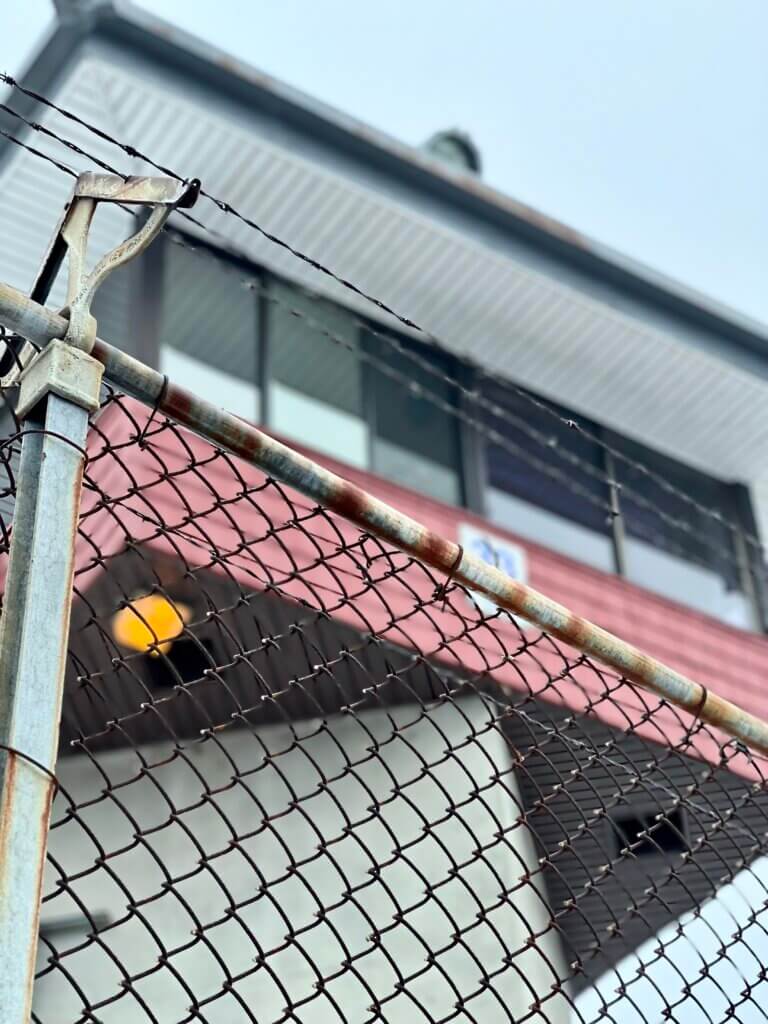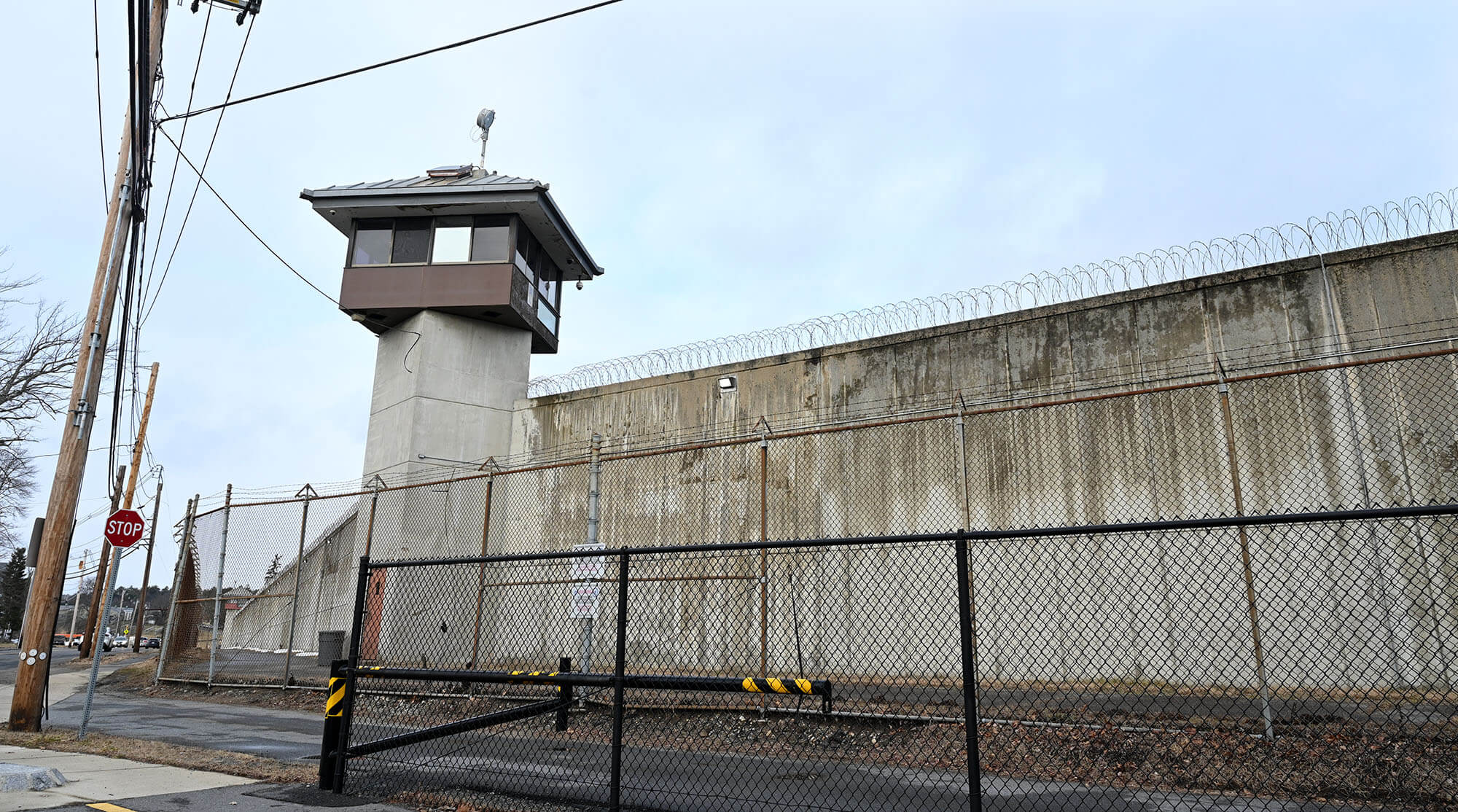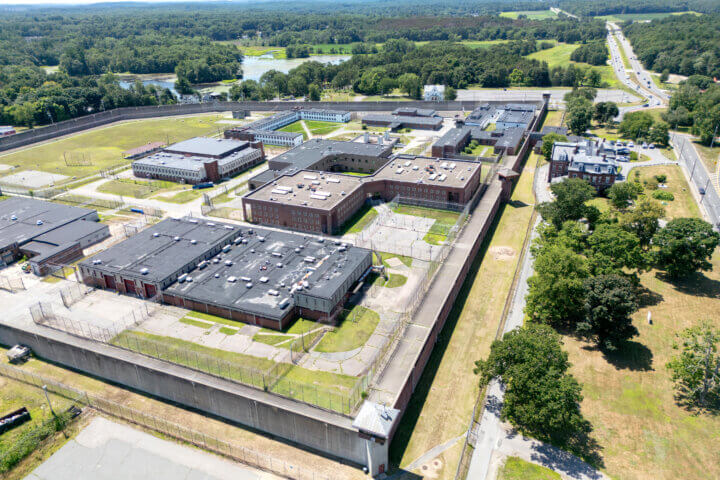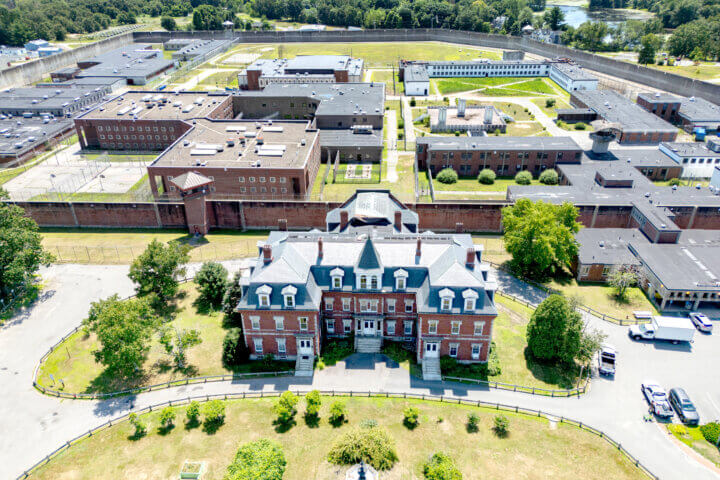By Erin Tiernan — Erin@theconcordbridge.org
Concord officials have taken their seats at the table in discussions over what happens next with the MCI-Concord property as the state begins decommissioning the long-running penitentiary.
That process began Monday when the town’s 11-member MCI-Concord Advisory Board met for the first time. The state Division of Capital Asset Management and Maintenance is leading the decommissioning.
“My understanding is that they assess the conditions, they engage with the community to try and understand what our goals are, and then there’s some planning that takes place — and by planning, I mean what are some anticipated uses of various portions of the property,” Select Board Clerk Mark Howell told The Concord Bridge after the meeting.
Gov. Maura Healey’s January announcement of the impending closure of MCI-Concord, the state’s longest-running men’s prison, caught locals by surprise. Town officials and members of the local legislative delegation have fought to make sure Concord isn’t similarly cut out of the redevelopment process.
Monday morning, members laid out what that process might look like in conjunction with a representative from DCAMM and Rep. Simon Cataldo’s (D-Concord) office. Members expressed a desire to move quickly and transparently and set an aggressive, biweekly meeting schedule. The next meeting is on June 24, and it will be both online and in person.
Paul Lillehaugen of DCAMM said department officials would appear before the board in July to lay out what’s likely to be an 18-month process in which the DCAMM surveys the property and tallies the assets and buildings there.
Howell said the town and state are interested in a “collaborative process.”
“We want to anticipate the uses of various portions of the property so that then a real estate process can take place. What DCAMM doesn’t want to do is begin a process of transferring the land to someone who wants to use it in a way that the town doesn’t want to zone for,” he said.
“That is ultimately our control point.”

More housing?
There is already a call for housing on the 64-acre plot currently occupied by the prison. The town previously made a commitment to constructing housing at the neighboring Junction Village site.
“There’s a recognition that it makes sense to engage in a master planning process” as members and residents mull opportunities, Howell said.
What that process will look like is just being sussed out.
Select Board Chair Mary Hartman previously told The Bridge she’s interested in launching a townwide master planning process. Concord will also soon be in receipt of somewhere between $250,000 and $475,000 to aid in the planning of the prison site redevelopment.
The exact amount will depend on what the Legislature approves in its final annual budget, expected at the end of this month.
The prison land, which sits on the Route 2 rotary, steps from the West Concord stop on the Fitchburg commuter rail line, is one of several area properties that will open for development in the next few years.
The West Concord Advisory Committee has a discussion on the village’s Master Plan on its Thursday night agenda.
MassDOT is reportedly also looking at reconstruction opportunities for the rotary, officials said. Howell said the prison closure and pending redevelopment offer a great opportunity to ease traffic and improve safety at the pinch point.
MCI-Concord’s closure comes amid the state’s lowest prison population in 35 years. The move includes a potential savings of more than $200 million in operating, maintenance, and capital project costs, the state said when announcing the closure.
At the time of the January announcement, the correctional facility was at 50 percent capacity and held just under 400 prisoners. The state Department of Corrections has since started transferring inmates to other prisons. As of June 3, just 95 men were still behind bars at the Concord jail.
A spokesman for the state Executive Office of Public Safety and Security said the remaining inmates are on track to be gone by the end of June.






